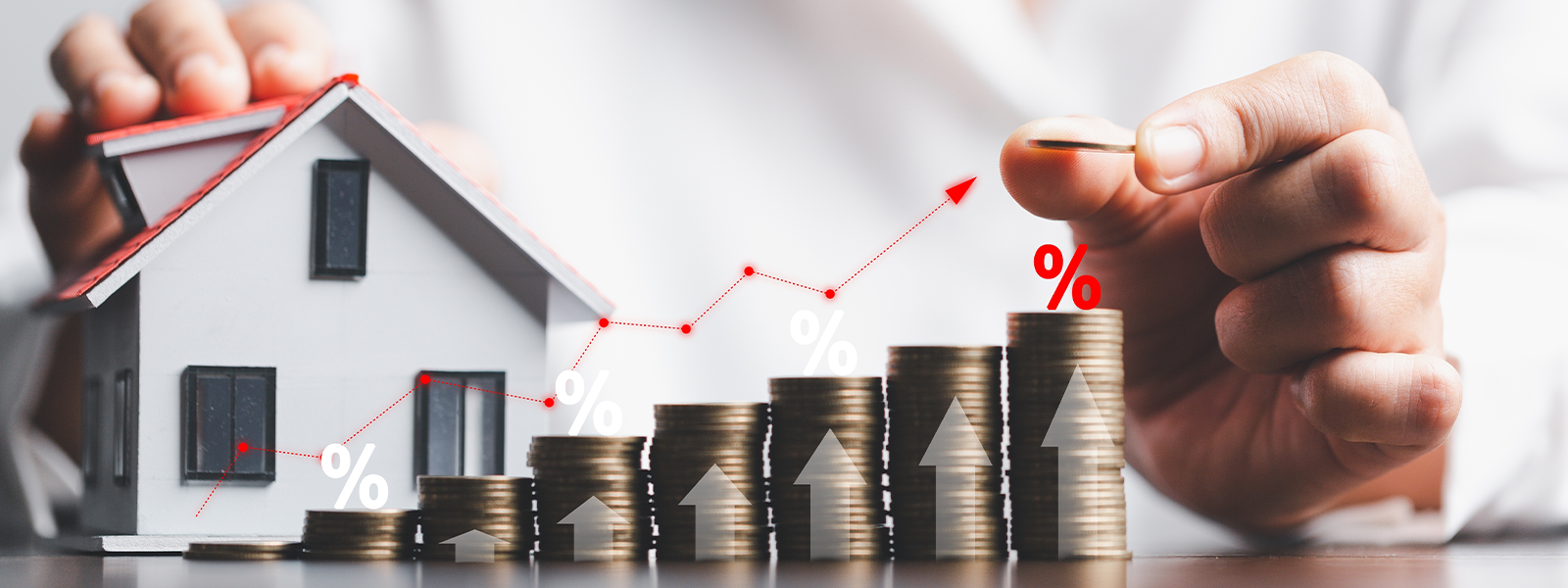GST Charges in Real Estate Sector
October 23, 2024 in Property Guide

Introduction
Goods and Services Tax (GST) has been hailed as one of the major tax reforms to have been introduced in the country. GST has had an impact on multiple sectors of the economy, including real estate. In India, the real estate sector is expected to grow steadily over the next few decades; hence it is crucial for investors to know all about the impact of GST charges in real estate sector. If you want to know current GST charges in India, then read further.
In India, buyers of properties under construction, including flats, apartments, and bungalows, are required to pay a Goods and Services Tax (GST) at a rate of 1% for affordable housing and 5% for non-affordable housing. The GST charges in real estate sector are also applicable to the purchase of developable plots in real estate. At least 80% of the raw materials must be obtained from a registered dealer in order for flats to qualify for the 1% GST Rate. If not, the developer is obligated by RCM to pay GST at the 18% rate.
Read on to learn more about the impact of GST on real estate and what points you should keep in mind while buying a property.
Taxes before the introduction of the GST
Through the various stages of a housing project's construction cycle, a number of state and central taxes were levied on structures prior to the introduction of a single tax in the form of the GST in 2017. Although these taxes raised the cost of project development for developers, builders were not eligible for a credit against this tax on output liability.
Prior to the GST charges in real estate sector, developers were required to pay taxes such as: Tax on Value Added (VAT), Entry tax, service tax, LBT, and Central Excise. The house buyer subsequently became responsible for paying the builders' tax expenses. Ever since the introduction of GST on real estate, the tax regime has become simpler to manage for buyers as well as sellers. There is only one tax that you will have to deal with during your next real estate investment. You must note that GST charges in real estate sector are applicable only on the basic sale price listed in the agreement.
What Does GST On Real Estate Sector Mean?
In order to harmonise with other countries' taxation systems, the Goods and Service Tax was introduced in 2017. As already stated, prior to the introduction of the GST charges in real estate sector, the developer and the purchasers of real estate were responsible for paying several taxes, including the central excise, service tax, and value-added tax.
It was increasing the burden placed on home buyers both directly and indirectly. Additionally, there was less transparency in the taxation of the properties due to the complicated taxing structure. Initially, the GST on buying a home was 8% for housing that was cheap and 12% for housing that was not affordable or for luxury residential projects.
However, In the 33rd GST Council meeting, the GST rates were modified, and the GST on the purchase of a flat was cut down to 1% under the new GST rates for affordable housing segments and 5% for non-affordable or premium housing units without ITC.
Real Estate Registration and Stamp Duty
When it comes to real estate, state government taxes in the form of registration fees and stamp duties have not changed as a result of the GST. These fees differ from one state to the next as well as within the same state from one circle to another.
While GST will only be applicable to properties that are being sold while they are still under construction, stamp duty and registration fees will still be imposed on all properties in India, whether they are already built or not. Moreover, GST charges in real estate sector must be paid every time some money is paid to the developer, and the entire GST amount must be paid before possession of the property.
On the other hand, state government charges like stamp duty and registration expenses must be paid at the time of registration of the title deed.
Input Tax Credit for Developers of Real Estate
Since the implementation of the GST regime, real estate developers are able to claim input tax credits for a variety of inputs, including labour, sand, cement, and bricks. Each of these inputs is necessary for the process of developing a structure. The primary benefit of the Income Tax Credit is that it aids in preventing the scenario known as "Tax on Tax."
GST is applicable at every level and is received as a credit against the GST incurred at the stage before. Since the introduction of GST charges in real estate sector, some developers have been able to offer better prices to customers as their input costs have been reduced due to input tax credit.
Impact of GST on Real Estate
Here are some crucial aspects of GST in real estate that you must be aware of:
- In larger cities like Delhi NCR, housing prices were reported to have decreased with GST charges in real estate sector. In other parts of the country, housing prices were either unchanged or saw a slight increase.
- According to the Liases Foras research, the resale market was also adversely affected, with prices in Delhi NCR reportedly falling by 15% to 20%. This is true even though resale properties are exempt from GST.
- However, one can draw the conclusion that the effects of GST on real estate cannot yet be adequately assessed and will only become evident with time.
=> Read Also:- 5 Solid Reasons To Invest in Commercial Property Over Other Investments
Conclusion
One of the biggest changes to the real estate industry has been the GST. Customs Duty, VAT, Excise Duty, legal fees, service taxes, permission fees, and other costs are already covered by the developer, which complicates their tax procedures and burdens homeowners. Property tax was streamlined under GST charges in real estate sector.
The real estate tax rate was raised to 12% under the new GST system, which also lightened the burden on homebuyers. Both property buyers and developers are impacted by taxes. Moreover, with the tax regime and different requirements, purchasing a home in India could seem difficult.
Browse the many houses that Adani Realty has to offer while you're there with simplified procedures. It serves as a one-stop shop for all of your real estate buying needs and provides all the resources you require. To get answers to any questions or to clear up any doubts, you may also speak with their experts.
Looking for dream spaces, not sure where to start?
Leave us a query and our representative will get back to you.
Disclaimer
The Adani Realty expressly disclaims all liability in respect to actions taken or not taken based on any or all the contents of this Blog. The content of this blog is collation of data from various sources and is provided only for information purpose only and Adani Realty does not canvass the particulars, information, brand or any other materials mentioned in the blogs nor does it obtain any monetary benefit from the same.The Adani Realty shall in no circumstance be held liable for any expense, loss or damage including, without limitation, direct, indirect or consequential loss or damage, or any other expense, loss or damage whatsoever arising from the use of data, information, interpretation, judgement or opinion arising out of or in connection with the use of this Blog. Reader is advised to read and apply his/ her intellect and discretion in this regards.

